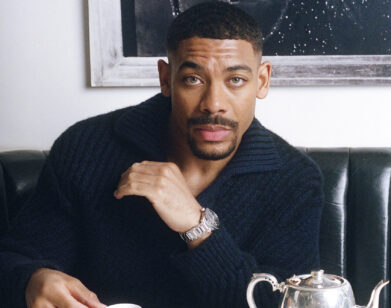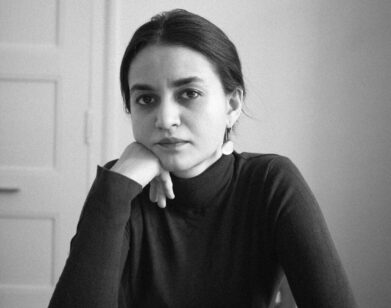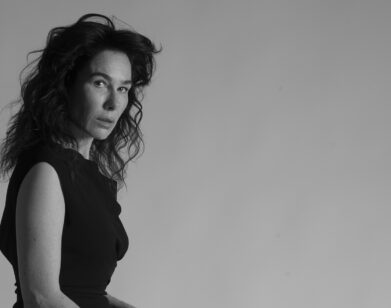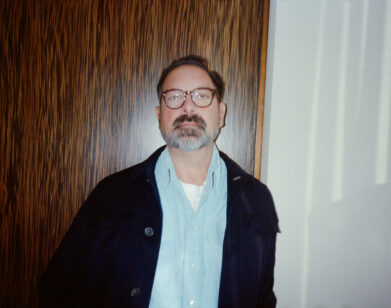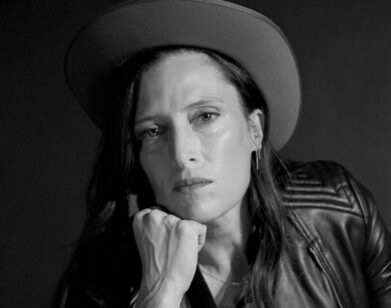Will Brill and the Thrill of the Chase
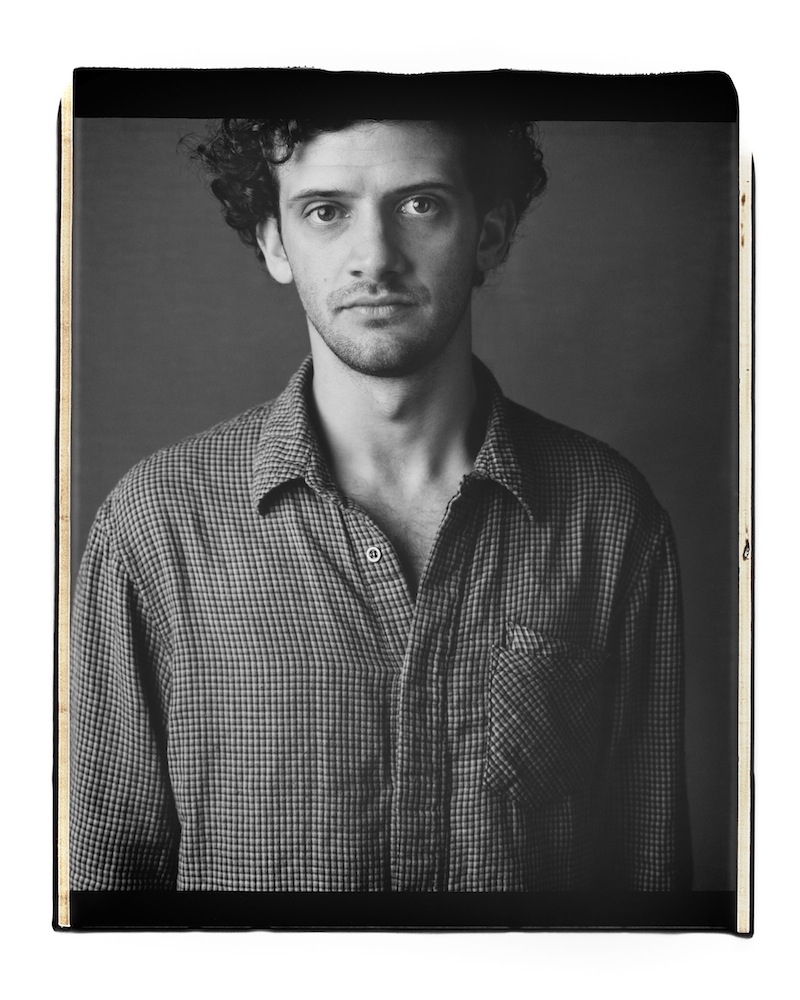
ABOVE: WILL BRILL. IMAGE COURTESY OF MYRNA SUAREZ
It’s been five years since the end of The Sopranos, David Chase’s groundbreaking HBO series about the mundanity—and occasional murder—of a modern-day Mafia family. It’s been said that Chase despises the medium of television, and accordingly, he’s making the much-anticipated transition to the big screen with his first feature, Not Fade Away (titled, of course, for the Rolling Stones song of the same name), which sees its wide release next month. The story of a ’60s garage band modeled after the Beatles, Chase cast three young unknowns—John Magaro, Jack Huston and Will Brill—to star alongside James Gandolfini, who plays Magaro’s conservative father. We had dinner with Brill, an old college friend, at Westville in New York City to discuss classic rock, Chase’s smoking habits, and how it feels to be called ugly by people on the Internet.
ANNA BRESLAW: I’m eating so much more than you. You’re making me feel bad.
WILL BRILL: Sorry! I ate! I’m gonna take some of this home. Just be cool.
BRESLAW: Were you familiar with David Chase’s work before auditioning for Not Fade Away?
BRILL: Only superficially. I’d seen one episode of The Sopranos with a dream sequence in it, and it kind of freaked me out. I thought, What is this? I don’t like this. But that was seven, eight, nine years before auditioning for this movie. I did have the experience of walking into my callback and seeing him sitting there and thinking, Jesus, God, that’s what the real Tony Soprano looks like. It was really, really scary.
BRESLAW: What was the audition process like?
BRILL: Well, David giggled during my audition, which was a great sign, but other than that he played things really close to the vest. So I came in for a few days and read the sides and then hounded my agents for a month asking about it, and eventually they told me, “It’s dead, you’re not gonna get it, you gotta let it go.” I was in this play that had been running for the past 10 months, and on the closing weekend, I bought my plane ticket to go home and be depressed about not being cast in anything else during my time in New York.
And they called me later that day and said, “No, actually, you’re going in for a screen test on Monday.” I also got a contract stating the pay I’d receive if I booked this job, and it’s this huge studio movie, and I was making like $300 a week doing this off-Broadway play. It was so scary.
So I pushed my plane ticket back and spent six hours in a room with John Magaro and David Chase and the producer, Mark Johnson, and the first question David asked me was, “Do you smoke?,” and I said yes. And he said “Good boy.” And I probably smoked two packs over the course of this six-hour audition while me and John filmed these three scenes from all angles. And then, again, I didn’t hear anything for a month. And a month later, they said, “You got it.” And by then it was so anticlimactic, because I’d been waiting so long that I said, “Fine, great, whatever.”
BRESLAW: I remember seeing you at a bar right after your first guitar lesson with Steve Van Zandt and you’d just dyed your hair blonde for the movie.
BRILL: Yeah, so two days or so after I got the part I went to Stevie Van Zandt’s studio and he gave me a brand new Gibson electric guitar that I took home. They really wanted to immerse us in the world of the film, so they gave us each an iPod with the complete discographies of the Beatles, the Stones, the Yardbirds, the Kinks, the Moody Blues… all of these bands that influenced the music in the movie.
Practice was great, it was me in one room of Steve’s studio learning chords with Robbie Mangano, who played with The Mothers of Invention, while John Magaro was with Andy White in another room learning drums. Later, we all came together for one five-hour practice a week on top of the 15-hour-a-week individual practices with our instruments. We had to learn 12 songs in three months. So it was really just quick and intense and on all kinds of guitars, just to become comfortable with the things in your hand.
BRESLAW: So is it anything like That Thing You Do, or whatever else conventional movies about bands from that time are—you know, where there’s a nice guy, and a guy on drugs, and the asshole who wants to go solo…
BRILL: The way I’ve heard David describe it is, it’s a biopic about nobody. It’s the story that occurred frequently in New York and New Jersey around the time of the British Invasion. Teenagers got together in someone’s garage and played together, and of course, the vast majority of the thousands and thousands of kids doing that failed, never got out of the basement or the garage. And this band plays at parties and like, one gig at a beach party for like 200 people… and that’s as big as they ever get. They fall apart for all kinds of reasons. The way that friends are bad to each other in high school is a lot of what this movie is about. And it’s a pretty brutal look at what it’s like to have friends and serious relationships with girls or your parents at that age.
BRESLAW: So who do you play?
BRILL: My character comes from extreme privilege and has been brought up to think about culture in a very specific way—he wants to call the band the Lord Byrons at one point. But he develops this intense paranoia as the movie progresses where he wants the band to be perfect before they ever leave the basement, not come out until the art is there. And that holds them back, and also the main character wants to turn this into a career, and the third character, played by Jack Huston, sees the idea of trying to be an artist—in the broader context of human civilization—as a small thing to work toward.
BRESLAW: How would you describe David Chase’s directing style?
BRILL: He’d come into our practices and lie down on the floor with his head propped up as we very terribly plunked out a song and looked around at each other, totally embarrassed, and he would say, “That’s fucking amazing.” One day he was trying to give me a direction and I wasn’t getting it, so finally he was came to me and said, “OK, we’re gonna do it like this: First you like it, then you don’t like it, then you think you like it but you’re also jealous that you didn’t come up with it.” So we shot it, and then he came back up and said, “Anyone who’s ever said you can’t give an actor result-oriented direction, Will Brill just said ‘That’s bullshit.'”
In that initial screen test, we were looking at instruments through a window, and I wasn’t giving him the expression he wanted and he said “Look at them like they’re weapons. Like you can take people apart with these things.” And that’s what clicked. He’s for the most part, very patient, but he does have a very clear vision of what he’s looking for. And because of the way he cast it— with a bunch of nobodies—he got exactly the kind of people he was looking for, and wound up being really happy and excited with these ugly weirdos he’s found. [laughs] And I say that lovingly. There was this one review that I didn’t even read, but John told me about, that mentioned, “Also, why are the three main guys so ugly?” But it’s like, whatever. Everyone was ugly in the ’60s. We’re all ugly, nobody cares. Attention is paid to that in the movie, and God bless David Chase for taking a chance on me despite that.
BRESLAW: You’re not ugly!
BRILL: Thanks.
NOT FADE AWAY IS OUT IN LIMITED RELEASE THIS FRIDAY, DECEMBER 21.

